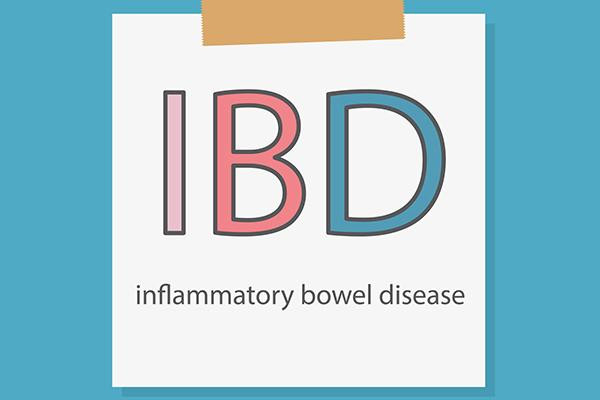
Can probiotics help calm inflammatory bowel disease?

Approximately three million Americans have inflammatory bowel disease (IBD). IBD is an umbrella term for Crohn’s disease and ulcerative colitis, illnesses marked by chronic or repeated bouts of inflammation in the digestive tract. Both types of IBD represent a complex interplay of genes, environment, and immune factors.
Current therapies for IBD suppress the immune system to reduce inflammation. But emerging research on the human microbiome may help scientists better understand and manage IBD. And some preliminary studies on cells, animals, and humans have investigated whether probiotics — which are sometimes called “good” bacteria — are beneficial for people with IBD.
The healthy microbiome: Building a barrier
The human intestinal microbiome is the vast community of trillions of helpful and harmful bacteria, viruses, fungi, and other microorganisms that inhabit our gut. Ideally, the lining of the gut acts as a barrier that prevents harmful bacteria and toxins from entering the bloodstream.
A healthy microbiome helps this lining block out harmful bacteria while enabling it to absorb nutrients. Beneficial bacteria in the microbiome promote a healthy, hospitable gut environment that limits inflammation and helps crowd out harmful bacteria.
Recent studies on human cells and in mice suggest that a healthy microbiome produces substances that
- nourish cells lining the colon, so that they form a tight barrier difficult for harmful bacteria to penetrate
- interact with immune cells in the gut, reducing inflammation
- prompt the gut lining to make mucus that acts as an additional barrier to harmful bacteria.
In animal studies, a healthy microbiome is essential to help build and maintain an effective barrier. Animals raised in the laboratory without a microbiome, or whose microbiome has been depleted by antibiotics, have intestinal linings that are easily damaged.
An unbalanced microbiome: Inflammation and damage
What happens if the microbiome doesn’t have a good balance of helpful and harmful bacteria? The gut lining may become increasingly permeable. That may allow potentially harmful bacteria and their toxins to cross into the intestinal tissue and then into the bloodstream, triggering inflammation that can damage the gut.
An imbalanced microbiome is known as dysbiosis. And the inflammatory cascade linked to dysbiosis is a hallmark of IBD.
Probiotics: More promise than evidence
Probiotics — live microorganisms in supplements or in fermented foods like kombucha, kefir, yogurt, and sauerkraut — have been proposed as therapies for IBD. The idea is that by eating beneficial bacteria we can restore and maintain a balanced microbiome, reduce inflammation, and improve the gut barrier. But what does the evidence say?
Thus far, no probiotic therapy is routinely prescribed for IBD. Small randomized studies have compared specific probiotics with standard immunosuppressive therapies for IBD. The studies measured IBD symptoms, remission rates, or quality of life. Results were mixed at best:
- Ulcerative colitis. Some studies suggest that certain bacterial strains, such as Bifidobacteria and Lactobacilli, are somewhat effective for ulcerative colitis, reducing symptoms, promoting remission, and improving quality of life. But these effects are modest compared to standard therapies, and probiotics have not shown enough benefit to be accepted in medical practice.
- Pouchitis. Some people with IBD may need surgery to remove the colon (large intestine). This can lead to inflammation in the remaining small intestine, which gets formed into a J-shaped pouch and attached to the anus. However, 25% to 45% of people who have a J-pouch later experience inflammation known as pouchitis. Several studies show that combining standard medication with a probiotic mix called VSL#3 effectively quells the symptoms and inflammation of pouchitis. VSL#3 contains eight strains of bacteria. It is used to treat chronic pouchitis, which is the only accepted use of probiotics in common practice for IBD.
- Crohn’s disease. Probiotics have not been studied as rigorously in Crohn’s disease as in ulcerative colitis. Most of the limited set of studies found that probiotics are no better than placebo in reducing symptoms or promoting remission.
Diet, fiber, and prebiotics: A role in IBD?
The makeup and activity of our microbiomes can be altered by diet. That’s true even if the foods you consume aren’t well-known probiotic stars like kombucha, yogurt, kefir, and other fermented foods.
Gut bacteria that break down dietary fiber are a cornerstone of a healthy microbiome. A high-fiber diet can boost the number of these bacteria, as well as their beneficial and anti-inflammatory effects.
Food ingredients that are not absorbed by the gut but are instead consumed by the gut microbiome are called prebiotics. We have limited — though promising — evidence supporting prebiotics for people with IBD. Currently, no specific prebiotic food or supplement is recommended for general use.
However, the Mediterranean diet, which encourages fiber-rich vegetables, whole grains, and legumes, may modestly reduce symptoms and markers of inflammation in IBD. While these effects are small and inconsistent, the Mediterranean diet improves overall health in people with or without IBD. Largely for this reason, the American Gastroenterology Association recommends it for people who have IBD.
The bottom line
Probiotics, and possibly even prebiotics, hold promise. But we don’t yet know how to harness their full potential for treating IBD. While current evidence suggests probiotics may one day be an effective way to help treat IBD, the complexity of the microbiome means that a one-size-fits-all approach is unlikely to work.
Many questions remain: Which strains of bacteria in the gut should we study? How do we determine the best cocktail of probiotics to reap maximum benefit? Given that everyone’s microbiome is different, is a personalized approach to probiotics the right strategy? How can we define ideal dosage and formulation of probiotics?
Delivery method (capsules, powders, foods), dosage, and duration of treatment all require more research. Until these questions are answered, probiotics and prebiotics remain complementary strategies in treating IBD alongside standard immunosuppressive therapies.
About the Authors

Jake Dockterman, MD, PhD, Contributor
Dr. Jake Dockterman is from Carlisle, MA and earned his bachelor’s degree in molecular and cellular biology from Harvard College. He completed his MD and PhD in immunology at Duke University, studying host-microbe interactions and mucosal … See Full Bio View all posts by Jake Dockterman, MD, PhD 
Loren Rabinowitz, MD, Contributor
Dr. Loren Rabinowitz is an instructor in medicine Beth Israel Deaconess Medical Center and Harvard Medical School, and an attending physician in the Inflammatory Bowel Disease Center at BIDMC. Her clinical research is focused on the … See Full Bio View all posts by Loren Rabinowitz, MD

Midlife ADHD? Coping strategies that can help

Trouble staying focused and paying attention are two familiar symptoms of attention deficit hyperactivity disorder (ADHD), a common health issue among children and teens.
When ADHD persists through early adulthood and on into middle age, it presents many of the same challenges it does in childhood: it’s hard to stay organized, start projects, stay on task, and meet deadlines. But now life is busier, and often expectations from work and family are even higher. Fortunately, there are lots of strategies that can help you navigate this time in your life.
Staying organized
Organizational tools are a must for people with adult ADHD. They’ll help you prioritize and track activities for each day or the coming weeks.
- Pick the right tools. Tools can include a pen and paper to make lists, or computer or smartphone apps to set appointment reminders, highlight important days on the calendar, mark deadlines, and keep lists and other information handy.
- Schedule updates. Set aside time each day to update your lists and schedules. Don’t let the task become a chore in itself; think of it like a routine task such as brushing your teeth, and do it daily so it becomes an established habit.
- Set a timer. And a word of caution: smartphones and computers can also turn into a distraction. If you have adult ADHD, you may find yourself spending hours looking at less useful apps or sites. If that’s a frequent trap for you, set a timer for each use or keep the phone off or in another room when you are trying to work.
Staying focused
Just being organized doesn’t mean your work will get done. But a few simple approaches can at least make it easier to do the work.
- Declutter your home and office. Give yourself an appealing work environment and keep important items easily accessible.
- Reduce distractions. This could mean changing your workstation so it doesn’t face a window, moving to a quieter space, or just silencing your smartphone and email alerts.
- Jot down ideas as they come to you. You may have an “aha” moment for one task while you’re in the middle of another. That’s okay; just write down that thought and get back to it later, after your more pressing work is finished.
Meeting deadlines
Deadlines pose two big challenges when you have adult ADHD. First, it’s hard to start a project, often because you want it to be perfect, or you’re intimidated by it so you put it off. Second, when you do start a project, it’s very easy to become distracted and leave the task unfinished.
How can you avoid these traps?
- Put off procrastinating. Put procrastination on your to-do list — like a chore — and fool yourself into actually starting your work.
- Deal with emails, phone calls, or other matters as soon as you can. That way there will be fewer things hanging over your head and overwhelming you later on.
- Be a clock watcher. Get a watch and get in the habit of using it. The more aware you are of time, the more likely you’ll be able to avoid spending too long on a task.
- Take one thing at a time. Multitasking is overrated for everyone — and it’s a nightmare for people with adult ADHD. Focus on completing one task, then move on to the next.
- Be realistic about your time. This can mean having to say no to new projects or other commitments.
Get more help
The ideas listed here can help you start coping with adult ADHD, but they may not be enough to help you overcome adult ADHD’s challenges.
Consider hiring an ADHD coach who can provide more strategies and give you additional tools to cope with your condition. Look for an ADHD coach who is a licensed mental health professional who specializes in treating ADHD, and may also have a certification in ADHD coaching from the ADHD Coaches Organization.
About the Author

Heidi Godman, Executive Editor, Harvard Health Letter
Heidi Godman is the executive editor of the Harvard Health Letter. Before coming to the Health Letter, she was an award-winning television news anchor and medical reporter for 25 years. Heidi was named a journalism fellow … See Full Bio View all posts by Heidi Godman
About the Reviewer

Howard E. LeWine, MD, Chief Medical Editor, Harvard Health Publishing; Editorial Advisory Board Member, Harvard Health Publishing
Dr. Howard LeWine is a practicing internist at Brigham and Women’s Hospital in Boston, Chief Medical Editor at Harvard Health Publishing, and editor in chief of Harvard Men’s Health Watch. See Full Bio View all posts by Howard E. LeWine, MD